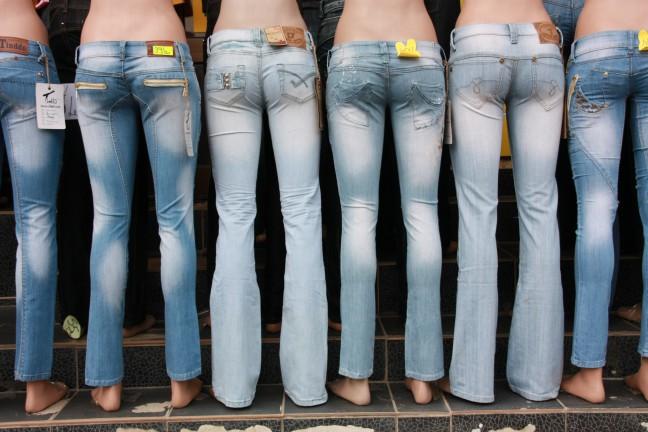Fashion is art. Just like paintings and photography capture truth and raw feeling, the way one dresses can be a window into their life, personality and soul. It’s no wonder then that fashion is a trillion-dollar industry, with more than $250 billion spent in the U.S. alone.
While the fashion industry is been a force for the economy, it’s a disaster environmentally and socially. Unfortunately for well-meaning fashionistas, the shirts on our backs have quite an adverse impact on fragile Earth and its people.
To understand why fashion’s carbon footprint is immense, let’s look at the supply chain for a t-shirt. The cotton for the shirt must first be grown and harvested. To manufacture just one t-shirt from cotton takes 2,700 liters of water. Not only are incredible amounts of water used, the cotton was likely sprayed with pesticide, then dyed to keep its color pristine and “clean.”
Because fashion is a global industry, we know the cotton was probably grown in China, India or the U.S., then shipped overseas to a labor-intensive sweatshop where workers struggle day and night to meet demands of the consumer.
To top it off, consumers are constantly replacing old clothes with new ones to keep up with the ever-changing trends — the cycle never stops. A detailed survey of almost 2,000 women found, on average, a piece of clothing is worn just seven times before being tossed.
With clothing demands, pollution, sweatshops and landfills growing, expressing oneself through style might not be the best option. This is one reason I dislike the club and party culture here in the Midwest. People tend to excessively buy cheap clothing in order to keep up with their social lifestyle. This leads to a sea of black stringy tops and vans, which is unoriginal and monotonous but also normalizes materialism and throw-away culture.
If people would stop purchasing unnecessary items, our Earth would benefit greatly. There are many simple and creative alternatives out there to minimize your social-carbon footprint.
One is to create a capsule closet. This consists of around 30 staple, basic pieces that don’t go out of style and are easy to mix-and-match with. By sticking to this minimalist wardrobe, you will reduce the number of unnecessary pieces you buy all while saving cash. Consider it a no-lose situation.
If you don’t want to reduce your wardrobe another option is to be brand-conscious. Zara and Urban Outfitters for example, are known to be controversial and unethical retailers constantly under the press’s scrutiny, yet not many people seem to notice or care.
These retailers and more contribute immensely to global warming and sweatshop use. Diligently search and you will find environmental treasure brands that have yet to hit stores. Set the trend.
Lastly, thrift. Thrifting can lead to a vintage and unique style. By reusing clothes, you are helping to reduce the overall production and consumption of fast fashion.
Next time you have an urge to treat yourself with retail therapy, consider these alternatives and know that you are doing the earth and its people a big favor.
Lisa Heverly ([email protected]) is a freshman majoring in international business.





















